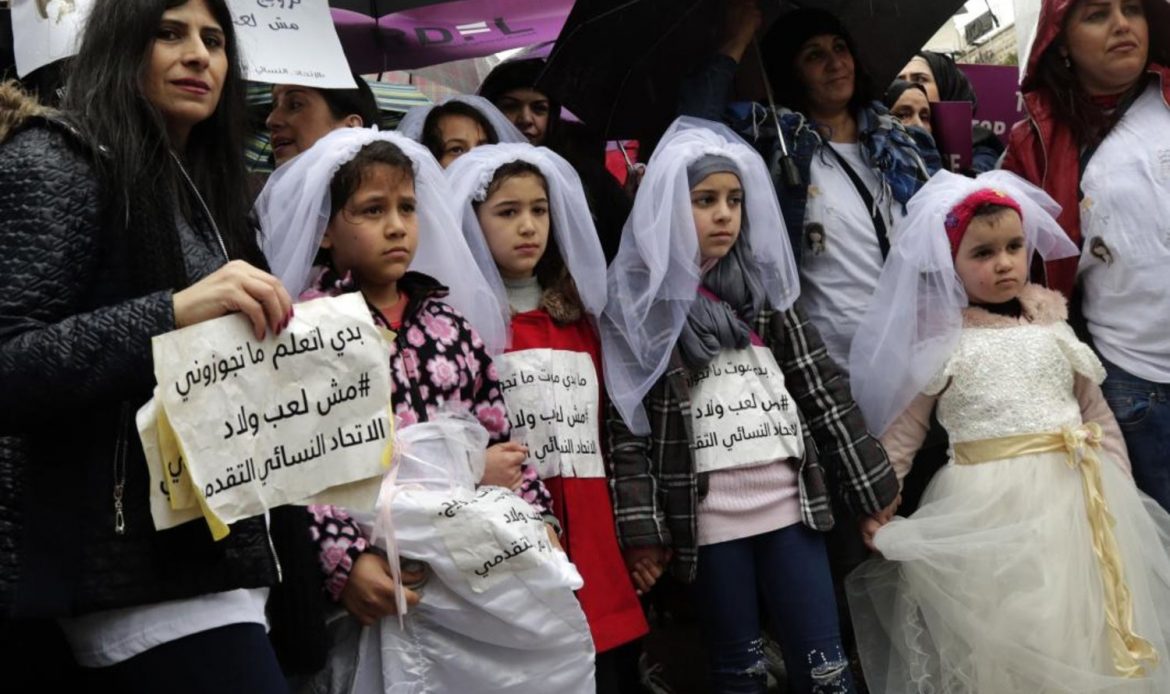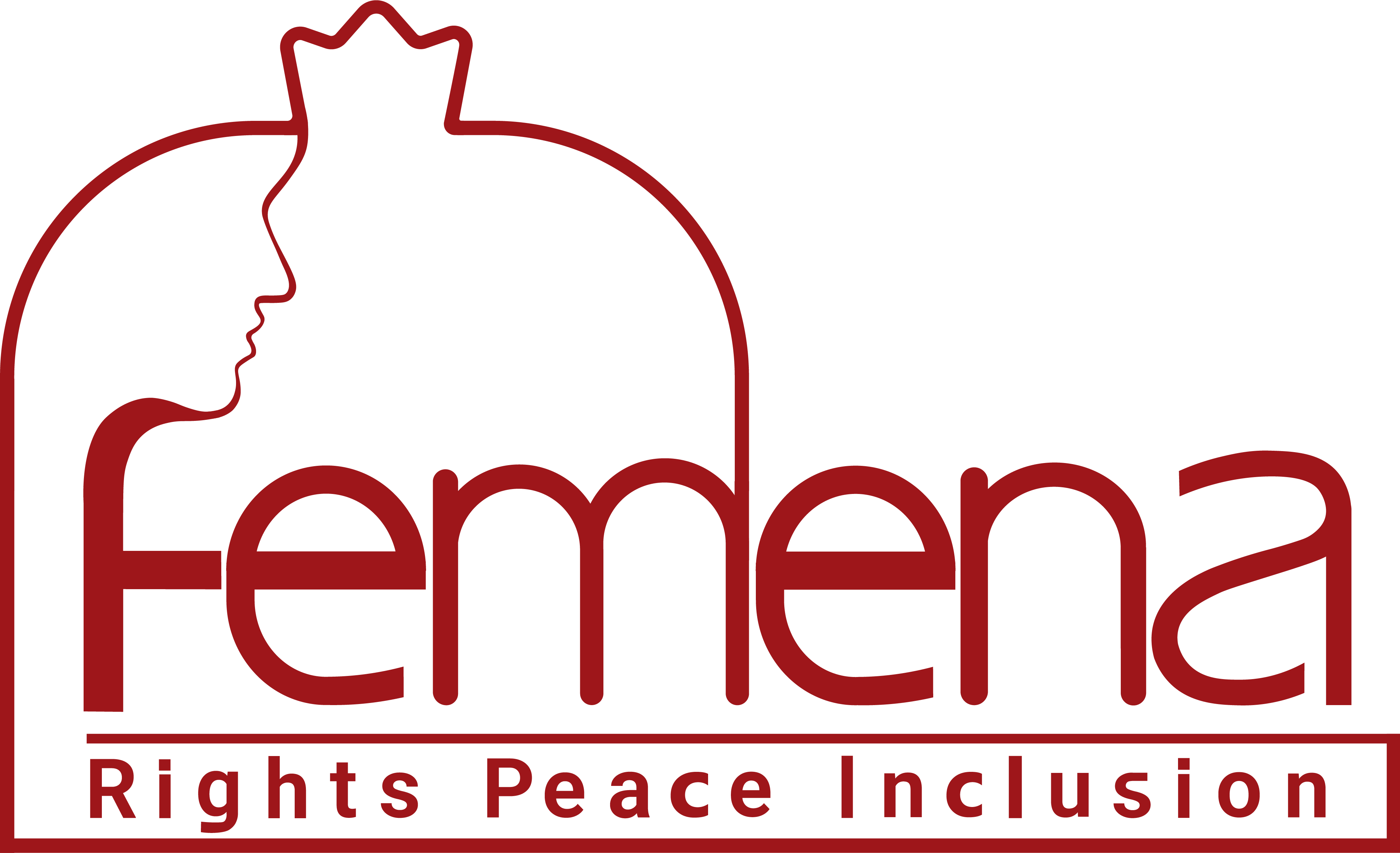
The International Day of the Girl Child, observed annually by the United Nations on October 11th, reminds us to break down gender stereotypes and champion gender equality for a brighter global future for girls and women.
This day underscores the need to ensure girls enjoy equal opportunities and protection, including their rights to education, healthcare, safety, and participation in decision-making.
It’s also a moment to spotlight the widespread challenges girls face, such as discrimination, violence, and social and economic disadvantages.
This year, we mark the International Day of the Girl Child as gender equality progress faces setbacks in many countries, and girls’ access to fundamental services and rights is under severe threat.
In this factsheet, Femena highlights the obstacles girls in Afghanistan, Egypt, and Syria confront, demonstrating why it’s essential to tackle these issues collectively.
Across the region, girls are facing increasing violence, systematic deprivation of their basic rights to education, health, and freedom, as well as abuse, forced labor, and child and forced marriages, all exacerbated by violence and oppressive regimes.
The fact sheet outlines crucial messages and recommendations for addressing these challenges.
Syrian Girls: Struggles, Challenges, and Resilience Amidst Conflict
Girls in Syria face urgent challenges: child marriage, limited access to reproductive health services, exploitative work, and abuse. Within Syria, as IDPs, and refugees, girls struggle to access education, and are in need of targeted support.
The 2011 Syrian conflict worsened challenges for girls, affecting education and health access. Girls, both in Syria and refugee camps, now face heightened exploitation and safety risks.
Before the conflict, girls in Syria experienced increasing access to education with efforts made to bridge gender gaps and improve literacy rates. However, the conflict damaged infrastructure and turned schools into military sites disrupting girls’ education. Safety concerns, displacement, and limited resources forced many girls to drop out. According to a report by Human Rights Watch, approximately 2 million children in Syria are out of school. This lack of education not only limits their opportunities for personal development but also perpetuates a cycle of poverty and dependence, with long-term implications for the ability of girls to fully participate in society.
Child marriage rates for Syrian girls have significantly increased in recent years due to the ongoing civil war. Before the conflict, 13% of Syrian girls were married before the age of 18, and 3% were married before their 15th birthday. Families often see early marriage as protection from poverty and violence, driven by societal norms and economic strain. According to data from the Norwegian Refugee Council, child marriage has increased to 23% among Syrian refugees in Lebanon.
Syrian girls face heightened gender-based violence as a result of conflict. Prolonged crisis has worsened pre existing gender inequality. Girls are at risk of exploitation, trafficking, and forced recruitment, with little legal protection. A cycle of trauma persists.
In addition, internally displaced girls and girls in refugee camps face heightened vulnerability to exploitation and abuse. Displacement often leads to overcrowded and temporary living conditions, making girls susceptible to numerous forms of violence.
Poverty and limited job options push Syrian girls into hazardous forms of child labor, devoid of safety measures, in Syria and refugee camps. This exploitation cycle persists without legal safeguard.
Recommendations
The Syrian government, International community, donors, and other key stakeholders must:
- Ensure the right to education for Syrian girls by establishing accessible education systems, through collaboration and cooperation between the international community, donors, the UN, the Syrian government, and host governments for Syrian refugees, including countries where refugee camps have been set up.
- Address mental health needs of internally displaced girls and girls in refugee camps by establishing psychosocial support programs.
- Strengthen legal frameworks and enforce laws to prevent child marriage, human trafficking, and other forms of violence. Adopt comprehensive protection measures to safeguard girls from exploitation and abuse.
- Prioritize economic empowerment and opportunities for adults in order to reduce child labor, and girls’ vulnerability.
Empowering Egyptian Girls: Addressing FGM, Early Marriage, and Child Labor
In Egypt, the pervasive issues of Female Genital Mutilation (FGM), early marriage, and child labor among girls form a deeply rooted challenge, intricately woven into the fabric of the country’s culture, society, and economy. This factsheet delves into the intricate landscape of these challenges, shedding light on their widespread occurrence and underscoring the critical need for holistic strategies to eradicate them.
FGM, affecting 87% of Egyptian women aged 15-49, is prevalent across rural and urban areas. Despite legislation against it, enforcement remains a challenge, necessitating a comprehensive approach involving legal, educational, and societal dimensions.
Approximately one in twenty girls aged 15-17 is married, rising to one in ten for ages 15-19. Legal barriers exist, but social and economic factors perpetuate early marriages. Bridging the gap between legislation and societal norms is crucial to tackling this issue.
1.3 million children (4.9%) engage in labor, reflecting the impact of poverty and limited access to education. Tailored economic empowerment programs are essential, providing opportunities and discouraging child labor.
Recommendations
The Egyptian government, International community, donors, and other key stakeholders must:
- Enhance law enforcement, ensuring stringent penalties for offenders. Advocacy and awareness campaigns are vital to shift societal attitudes, reinforcing the legal framework.
- Implement targeted economic initiatives, offering financial stability to vulnerable families. Vocational training and educational support can provide girls with alternatives, breaking the cycle of child labor and early marriages.
- Ensure comprehensive reproductive health services, focusing on education and support for survivors of FGM. Destigmatizing reproductive health conversations is crucial for encouraging seeking help.
- Launch nationwide awareness programs, highlighting the detrimental effects of FGM, early marriage, and child labor. Empowering girls through education, showcasing its role in personal and societal advancement, is essential for transformative change.
- Establish a robust monitoring system, gathering real-time data to adapt strategies effectively. Encourage non-governmental organizations to actively participate in investigations, fostering accountability and societal change.
Two Years of Darkness: The Ongoing Struggle for Girls’ Education in Afghanistan
In Afghanistan, the past two years have seen a devastating ban on girls’ access to secondary education since the return of the Taliban to power. Shockingly, this means that 80% of school-aged girls in Afghanistan are currently deprived of accessing this fundamental right.
This regression mirrors the oppressive policies the Taliban enforced during their previous rule, which included banning women from education, employment, and free movement. Despite mounting internal and international pressure, they steadfastly refuse to lift these restrictions on women. With 97% of the population already facing poverty, these limitations on women and girls have dire consequences for Afghanistan’s future. Additionally, the Taliban has banned women’s access to university-level education and prohibited them from participating in university entrance exams this year.
These restrictions extend to women and girls being banned from accessing parks, traveling without a male guardian, and even accessing basic healthcare services. Overall, the Taliban has issued 65 directives with the aim of systematically erasing women and girls from public spaces. On this International Day of the Girl Child, Femena amplifies the voices of women and girls in Afghanistan who demand the full spectrum of their rights, including the right of young girls to access secondary education as well as public spaces, including recreational spaces.
“I am a girl from Afghanistan. I was in the 12th grade when the Taliban took over and stripped me of all my human rights. I had made a promise to myself to pursue my dreams, but the Taliban buried all my hopes and aspirations for the future. I had dreamed of attending university, but for two long years, I’ve been waiting in vain. I feel like a prisoner in my own home, with no prospects for the future. The Taliban shows no willingness to make peace with women or respect our rights. They stand as adversaries of education and a barrier to my progress.” K. Sadat
Recommendations
The International community, donors, and other key stakeholders must:
- Exert immediate and unconditional pressure on the Taliban to reopen schools and universities for girls nationwide, ensuring non-interference in the educational curriculum.
- Allocate funding to grassroots civic groups that are actively engaged in providing education to girls across Afghanistan.
- Pressure the Taliban to grant girls access to public spaces and recreational facilities. Limiting their freedom of movement perpetuates early marriage and violence, making it crucial to take action and stop these harmful practices.


